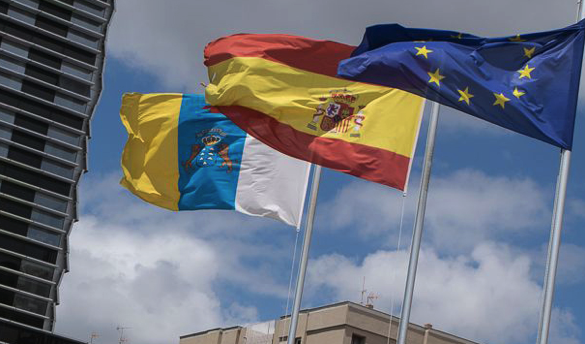Corporate Tax rate of 4% inside Europe? The Spanish Canary Island Special Zone (ZEC) offers an unrivaled tax regime
The European Commission authorized in 2000 a special tax regime for the Canary Islands (know as ZEC), as part of the policy of promoting social and economic development for the region.
An unrivaled tax regime for companies offers what can be considered the most attractive tax environment for industrial, distribution, manufacture, IT and a wide range of services included in the official list of authorized activities.
What type of companies can apply for the ZEC tax regime?
Companies of any nationality that open a new entity in the Canary Islands, by incorporating a subsidiary or a simple branch office in the territory
In particular, the possibility of splitting part of the activity and allocate it to the new entity based in the Canary Islands brings a very flexible way to maximize the profitability of the business, that once registered and authorized in the Canaries, will benefit from all the aspects of the special tax regime.
Does this regime benefit from the EU Legislation?
Definitely yes, with no distinction, as if the new entity was based in any other part of the Spain’s territory.
Consequently, international treaties, Double Taxation Treaties as well as all the EU Directives are applicable without discussion.
What type of activities are allowed?
The list includes up to 32 potential activities, most of them openly defined. If divided in categories, the regime is available to:
Industrial:
- pharmaceutical
- fishing
- food industry, including manufacturing and distribution
- textile
- computer, electronics and machinery equipment
- aeronautical and unmanned vehicles
- natural and renewable energies
- shipping construction or repairing
Services:
- wholesale distribution
- travel agencies and booking services
- engineering, architectural, ICT related activities, R+D, security services
- advertising and consultancy
- legal and accounting services
Does the Tax regime applies only for the businesses carried out within the local Canary market?
There is no territorial restriction to the range of businesses carried out by the entity, and therefore it offers a perfect platform for companies with businesses worldwide. If taking as an example the wholesale distribution business, the Canary branch can be used as a platform for import/export Worldwide (to UE or to third parties).
Does the registration as a ZEC company requires investments or social commitments?
As a tool to contribute to the development of the Canary Islands, the applicant companies shall execute a minimum investment of 100,000 EUR (or 50,000 EUR if based in one of the smaller islands) and employ an annual average of 5 people (3 employees in case of smaller islands).
Once registered, what is the taxation of the activities conducted through the ZEC entity?
- Corporate Tax of 4% (instead of 25% in the rest of Spain)
- Full Exemption from Property Transfer Tax and Stamp Duty
- Exemption from VAT (locally equivalent to IGIG tax) in the supplies and imports of good and services.
Are there any direct restriction in the free movement of capital or indirectly through special withholding tax?
Absolutely not. As part of the EU, the Canary Island is subject to all European Legislation and therefore no withholding tax are applicable at the time of paying dividends, interests or capital gains to third parties.
The sole exception is made when the counterpart be a company based in one of the territories not meeting the standards of Exchange of Information regulated by the OECD.
DE LA VEGA & ASOCIADOS has successfully advised companies of different sectors, helping them in the drafting of the business, application project and related set up requirements until the fully operational status. For enquiries contact: info@ej-delavega.com or through or web site www.delavegayasociados.com




